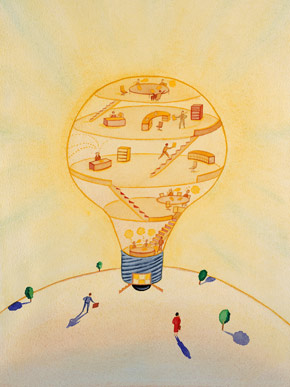As a nation we are shortly going to be captured by the excitement of the business end of the Rugby World Cup and how our very much loved All Blacks will perform and hopefully succeed in bringing home the cup.
As much as anyone else, I am looking forward to the morning starts (with the now approved cheeky drink at a pub) to watch the games and championing the winning and losing teams and nations as the tournament unfolds.
One thing that has kept me completely enthralled in the build up to the tournament is the strong leadership and family culture that the All Blacks has developed and how they managed the selection process with the players when announcing those who were successful and unsuccessful.
We often use sport as a strong analogy for how teams, leaders, or organisations should perform. But this one event, to me, is one of the strongest recent public examples of how we should lead, connect and engage with each other in organisations.
Steve Hansen, looking from the outside in, has demonstrated empathy, strength, a commitment to his players whilst having an unwavering focus on strong performance and having an “A” team deliver at their very best.
The way that that he connected with the players who were not successful in making the 31-man All Blacks squad, to me, was an incredible example of a great culture and a demonstration of a person committed to his people.
He was quoted as saying: “We are a family and you don’t hang your family out to dry.”
He very much considered the human element to the process and that each player needed different things from the selectors in understanding why they weren’t successful.
His commitment to providing a full explanation of the reasons why, and ensuring that there was complete honesty with every player, showed such integrity and, as he said, “they may not completely agree with what was being said, but at least they could always say we were honest”.
Hansen, of course, is not the first coach of the All Blacks to drop players, but to me he is certainly the first to show such empathy and care to his family of players.
His approach and dedication to building a strong performance culture certainly transcends into the business world; and whilst we are all not playing for world glory we are all striving for wins in our “working worlds”.
What I have taken away from Steve Hansen’s approach in the build up to the world cup and how he has led the team is:
- Have a strong vision and framework to work from: Ensure everyone understands what you are all working towards, what is expected from each team member and what an “A-standard” performance looks like.
- Build a close-knit culture and sense of togetherness: Care about your people, understand who your people are and what their drivers are. Understand their performance strengths and areas of development – and make that a shared development journey which all parties openly work towards.
- Make everyone part of the same team: Ensure that everyone is working towards the same goal together. We all have our own part to play but we need to ensure that no matter “what end of the field we play” we all contribute.
- Break down the play: Share and showcase good performance and behaviours that you want to see more of in your organisation as well as the behaviours or actions that you don’t, so that everyone understands what “success” looks like each and every day. But of course this needs to be communicated in a way that “you play the ball not the man” – the focus is on the style of play needed – not judging the player behind it.
- Constantly learn and constantly evolve: No team plays the same game every time, they constantly learn and evolve to improve their game and play. Never take success or a win for granted, every time you go out on the field and play a new team you need to play with the same energy, determination, and commitment regardless of how many times you have succeeded before.
- Take a long term view: Steve Hansen has done a great job in the way he has connected and engaged with the unsuccessful players so that the relationship is still intact and players still want to part of the greater rugby family. Putting aside the potential of another Stephen Donald needed to step in at the last moment – he knows that there is life beyond the 2015 Rugby World Cup and therefore is ensuring relationships are maintained and protected.
Regardless of the sport of choice, to me, sport and the dynamics of what happens on and off the field is a strong and true reflection of how organisations, leadership and the complexities of culture, performance and being part of a team operate.
As a country I hope that we have the opportunity of keeping the Rugby World Cup for another four years and I am sure that we will fully embrace that win as a New Zealand win.
I wonder if we also embraced some of the behaviours, standards and culture that Steve and others have committed to within the All Blacks would that provide an even greater win for us all?









